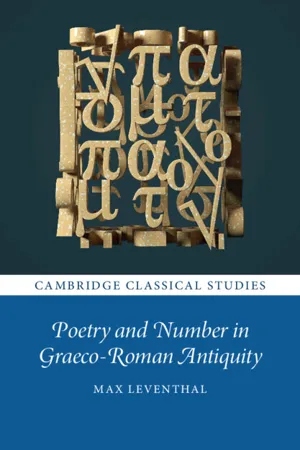
Poetry and Number in Graeco-Roman Antiquity
Max Leventhal
- English
- PDF
- Disponibile su iOS e Android
Poetry and Number in Graeco-Roman Antiquity
Max Leventhal
Informazioni sul libro
Poetry and mathematics might seem to be worlds apart. Nevertheless, a number of Greek and Roman poets incorporated counting and calculation within their verses. Setting the work of authors such as Callimachus, Catullus and Archimedes in dialogue with the less well-known isopsephic epigrams of Leonides of Alexandria and the anonymous arithmetical poems preserved in the Palatine Anthology, the book reveals the various roles that number played in ancient poetry. Focussing especially on counting and arithmetic, Max Leventhal demonstrates how the discussion, rejection or enacting of these two operations was bound up with wider conceptions of the nature of poetry. Practices of composing, reading, interpreting and critiquing poetry emerge in these texts as having a numerical component. The result is an illuminating new way of approaching Greek and Latin poetry – and one that reaches across modern disciplinary divisions.